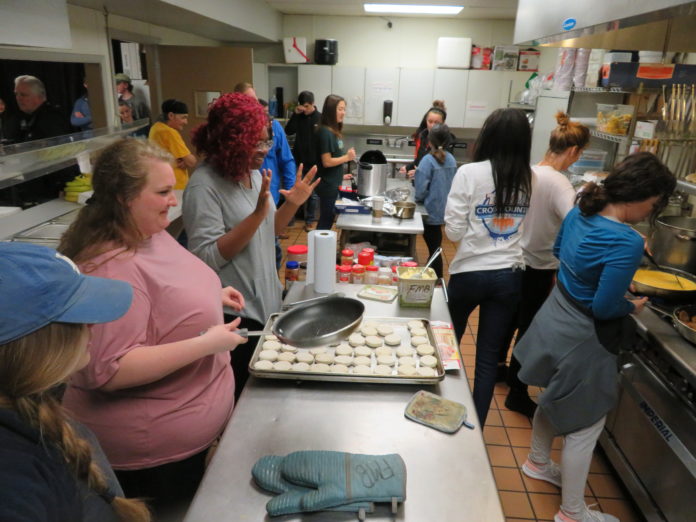
By Taylor Wolf | Social Media Editor
Baylor’s Philanthropy and Public Service Program, housed by the Honors College, offers a unique opportunity to students – receiving course credit that can substitute for a lifetime fitness credit.
While the PPS 1100 course, Citizenship and Community Service, is required for a Bachelor of Social Work degree, students working toward a Bachelor of Science, fine art or art degree may substitute it for a lifetime fitness credit. The course is open as an elective to all other students.
According to the current course catalog, “In addition to one weekly classroom hour, a minimum of two hours per week of community service is required. May be repeated a maximum of four times with a different topic each time.”
The Citizenship and Community Service course offers 12 sections that cover 11 topics of community service. The variety of topics range from Waco poverty to community gardening to law and public service.
Dr. Andrew Hogue, director of Baylor’s philanthropy and public service program and senior lecturer in the Honors College, said the variety of instructors and various topics of the 1100 sections stay consistent for the most part even though one may get removed on occasion due to instructor availability.
“Most of our instructors of those courses are actually leaders of local nonprofits,” Hogue said. “Because they are embedded in nonprofits here in the community, they’re able to provide students with meaningful opportunities for service.”
Most sections consist of one lecture hour a week in the classroom and two hours of volunteer service outside the classroom – sometimes independent, and other times group coordinated.
“It’s not just service for the sake of service,” Hogue said. “It’s connected very directly to the learning in the classroom. What’s learned in the classroom, hopefully, creates more informed service. What happens in service, hopefully, informs the conversations in the classroom.”
For example, when learning in the classroom about contributing factors to homelessness, a more informed student could better serve the local homeless population when volunteering in the community by understanding the causes.
“We hope these kinds of experiences are shaping students for the long haul,” Hogue said. “That this is helping people begin to understand what it looks like to be part of a community, to be engaged in the life of the community, to try and make sure it flourishes.”
In some cases, Hogue said students will decide to enter the service field or continue working with an organization after completing the course – increasing their engagement with the community and the issues.
Dallas junior Riley Howard, who is taking the careers in law section of the PPS 1100 course, was looking at her lifetime fitness course credit options when she found the philanthropy and public service course. As a pre-law student, the course offers a unique opportunity to get involved in other areas and with students outside her area of study.
“It’s made me think about areas of law that I might not have explored before,” Howard said. “It’s just cool because it’s not degree specific — for example, in my class, there’s a pre-med student and a social work student. The mix just brings in a lot of different perspectives.”
Hogue said the program numbers remain steady from semester to semester in the effort to be able to meaningfully place students in service opportunities within the community and not over-run service organizations with students.
“It is a disservice to organizations if we are flooding them with volunteers,” Hogue said. “They couldn’t accommodate 3,000 students. So, we have about 300 or so [students] who take these classes every semester, and that’s a good number.”
While a consistently small program in terms of size, it’s been a part of Baylor for almost 30 years.
“Baylor was actually on the cutting edge of a national movement to embed service learning into the curriculum, and so in 1991 the program began,” Hogue said. “It was then called the Civic Education and Community Service Program — that was when the 1100 course came on the books, and it’s been operating continuously ever since.”
On the program’s webpage, students can find philanthropy and public service education resources such as lists of community partnerships and the civic learning courses.
While current students can earn lifetime fitness credit for taking the PPS 1100 course, Hogue said that may not be the case for entering students as the core curriculum changes. This new option could potentially change Bachelor of Art, fine art and science degree requirements in the near future.




